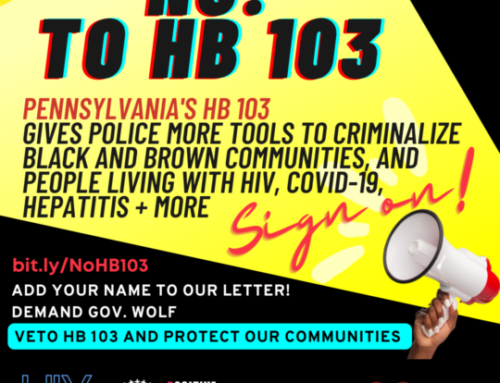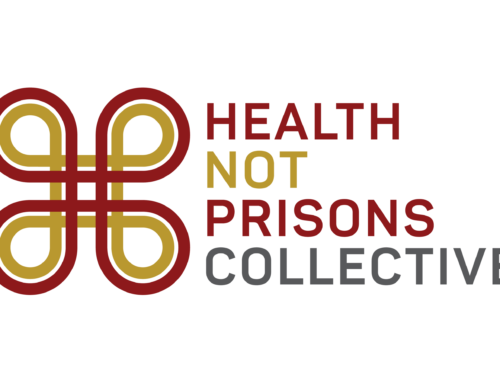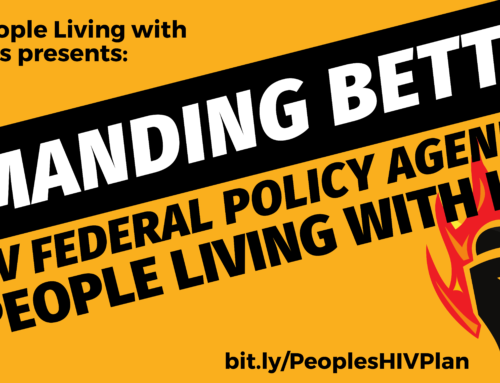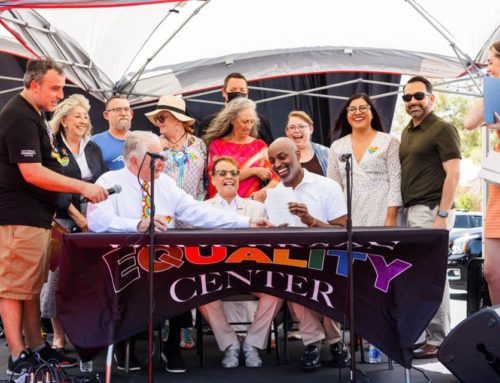By Brook Kelly
Deon Haywood, Executive Director of Women with a Vision (WWAV) in New Orleans, LA, hosted PWN’s Human Rights Training in June 2011. PWN’s Brook Kelly interviewed Deon after the training.
What is Women with a Vision’s (WWAV) mission?
Women with a Vision was founded in the late 80′s and early 90′s to provide HIV/AIDS prevention and education for black women in New Orleans using a harm reduction model. WWAV has always worked with populations no one wants to work with: sex workers, substance users, and injection drug users. By meeting women where they are, spending time in our community, using harm reduction, and our story circle model to build relationships, we filled that gap and continue to be a place black women and trans women in New Orleans can come to and feel safe. We stand with women no matter where they are.
Our advocacy work is always about connecting and building a base of women in Louisiana and making the connection to national and even global issues affecting women. What is happening here is happening around the world. We are not alone in our struggle.
How has your work changed over the years?
In New Orleans, nationally, and globally there is a sustained war on women’s bodies. Post-Katrina, women we work with began to get caught up in a 205-year-old Solicitation Crimes Against Nature (SCAN) law meant to criminalize gay men. SCAN criminalizes people suspected of performing oral sex as felons and requires sex offender list registry. The people being caught up in these charges, and forced to register as sex offenders, are sex workers on the streets – poor black women and trans women – whose only crimes are victimless consensual sex acts.
Being a registered sex offender comes with serious consequences. In New Orleans, our entire infrastructure was destroyed. Mental health and drug treatment money was cut. Now, women registered as sex offenders are not allowed to use the few facilities available because of the conviction under SCAN. Not to mention the difficulty in getting work or retaining custody of children as a registered sex offender.
On top of this, by criminalizing oral sex, the law criminalizes one of the few tools sex workers have to reduce their vulnerability to HIV and to ensure their physical safety.
What work at WWAV are you most proud of?
We are proud of the level of trust we have built in our community with women and trans women. The state of Louisiana did a needs assessment with transgender women. They said the place they come to and feel safe and treated with respect is WWAV.
This year we have had incredible success in fighting SCAN through local and national partnerships. In February, WWAV worked to file a federal lawsuit challenging SCAN as unconstitutional, in partnership with the Center for Constitutional Rights and Loyola University New Orleans College of Law. In May we began work with Representative Marchand Stiaes, to co-author a bill removing the Solicitation of a Crime Against Nature from the sex offender registry. The bill has successfully moved through the Louisiana House and Senate. We are hoping for victory shortly!
What policy issues will WWAV focus on this year?
First, we want to stop the bill in the Louisiana legislature that will require drug testing for women who receive money from the Temporary Assistance For Needy Families (TANF) program.
Second, we will focus on holding the state of Louisiana accountable for their response, or lack of response, to the HIV epidemic, especially for women, through work with the 30 for 30 Campaign.
PWN-USA thanks Deon Haywood and WWAV for their amazing work, as well as Human Rights Watch and NAPWA for partnering on the Human Rights training. For more information on WWAV please visit their website wwav-no.org







